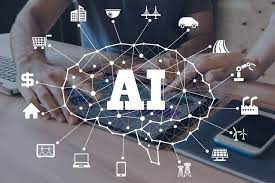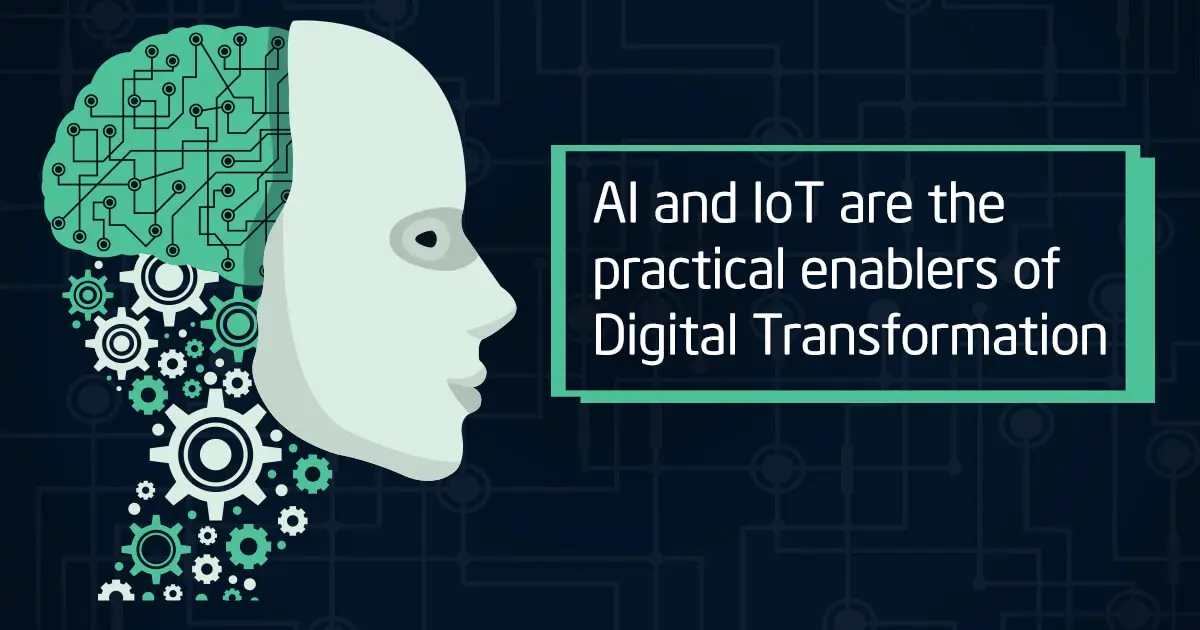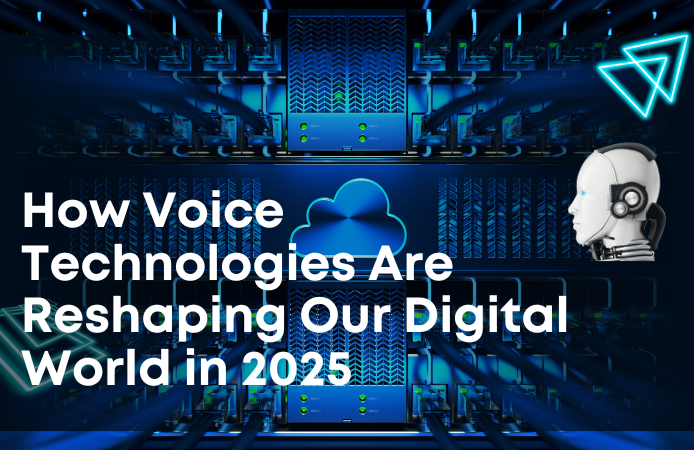The Role of AI in Digital Transformation
The advent of Artificial Intelligence (AI) has revolutionized many aspects of modern society, including the way we work, communicate, and conduct business. The growing adoption of AI technologies in the digital transformation process has significantly improved organizational efficiency, productivity, and competitiveness. This article explores the role of AI in digital transformation, its benefits, and potential challenges.

Why you should use AI in digital transformation
For several reasons, AI, or artificial intelligence, is a key enabler of digital transformation. Here are some of the main reasons why AI is needed for digital transformation:
- Automation: AI can automate repetitive and time-consuming tasks, allowing organizations to free up their employees to focus on more strategic initiatives. This can help improve efficiency and reduce costs.
- Improved data analysis: AI can analyze vast amounts of data quickly and accurately, identifying patterns and insights that humans may not be able to see. This can help organizations optimize their processes, improve decision-making, and gain a competitive edge.
- Enhanced customer experience: AI can support organizations to provide a more personalized customer experience by analyzing customer data and anticipating their needs. For example, AI-powered recommendation engines can suggest products or services based on a customer’s browsing history.
- New business models: AI can help organizations create new business models by leveraging data and insights in new ways. For example, companies can use AI to develop predictive maintenance models that anticipate when equipment is likely to fail, enabling them to perform maintenance before a breakdown occurs.
- Agility and flexibility: AI can enable organizations to be more agile and flexible by enabling them to adapt quickly to changing market conditions. For example, companies can use AI to monitor market trends and adjust their strategies accordingly.
AI is needed for digital transformation because it can help organizations automate processes, improve data analysis, enhance customer experience, create new business models, and increase agility and flexibility. By leveraging AI effectively, organizations can stay ahead of the competition and succeed in the digital economy.

How to use AI in Digital Transformation
Digital transformation involves the use of technology to improve business processes, enhance customer experiences, and create new business models. AI is a critical component of digital transformation since it enables organizations to automate complex tasks, generate insights, and improve decision-making processes. Some of the areas where AI is being utilized in digital transformation include:
- Process Automation: AI technologies such as Robotic Process Automation (RPA) and Natural Language Processing (NLP) are being used to automate repetitive and routine tasks such as data entry, document processing, and customer support. This has significantly reduced the time and cost required to complete such tasks, allowing employees to focus on more complex tasks that require human expertise.
- Predictive Analytics: AI-powered analytics tools generate insights from large volumes of data. This enables organizations to make data-driven decisions, identify emerging trends, and anticipate customer needs.
- Personalization: AI technologies such as machine learning algorithms are being used to analyze customer behaviour and preferences, enabling organizations to deliver personalized products and services.
- Chatbots: AI-powered chatbots are being used to provide 24/7 customer support, reducing the need for human agents and improving response times.
Benefits of AI in Digital Transformation
The use of AI in digital transformation offers numerous benefits to organizations, including:
- Improved Efficiency: AI-powered automation tools reduce the time and cost required to complete routine tasks, allowing employees to focus on more complex tasks that require human expertise.
- Enhanced Customer Experience: AI-powered personalization and chatbot tools enable organizations to provide personalized and responsive customer support, improving customer satisfaction.
- Data-Driven Decision Making: AI-powered analytics tools enable organizations to generate insights from large volumes of data, allowing them to make data-driven decisions.
- Increased Competitive Advantage: Organizations that adopt AI-powered technologies are better equipped to respond to changing market conditions and emerging trends, giving them a competitive advantage.

Challenges of AI in Digital Transformation
Despite the numerous benefits of AI in digital transformation, there are also potential challenges, including:
- Cost: The adoption of AI technologies requires significant investment in infrastructure, software, and talent.
- Data Quality: AI algorithms require high-quality data to generate accurate insights. Poor data quality can result in inaccurate insights and decisions.
- Ethical Concerns: The use of AI in decision-making processes raises ethical concerns, such as bias and discrimination.
- Security: The use of AI technologies also raises concerns about data security and privacy, especially in cases where sensitive data is being processed.
Conclusion
The adoption of AI technologies in digital transformation has significant implications for organizations. AI-powered automation, analytics, personalization, and chatbot tools offer numerous benefits, including improved efficiency, enhanced customer experience, data-driven decision-making, and increased competitive advantage. However, adopting AI technologies also presents potential challenges, such as cost, data quality, ethical concerns, and security. Therefore, organizations must carefully evaluate AI’s benefits and potential challenges in digital transformation before making decisions about its adoption.
Make sure to subscribe to my newsletter to make sure you will receive regular updates on my upcoming articles. I will share with you a little teaser that I am preparing a lot more content focused on AI, and surely you are as passionate as I am about this topic. Stay tuned!



